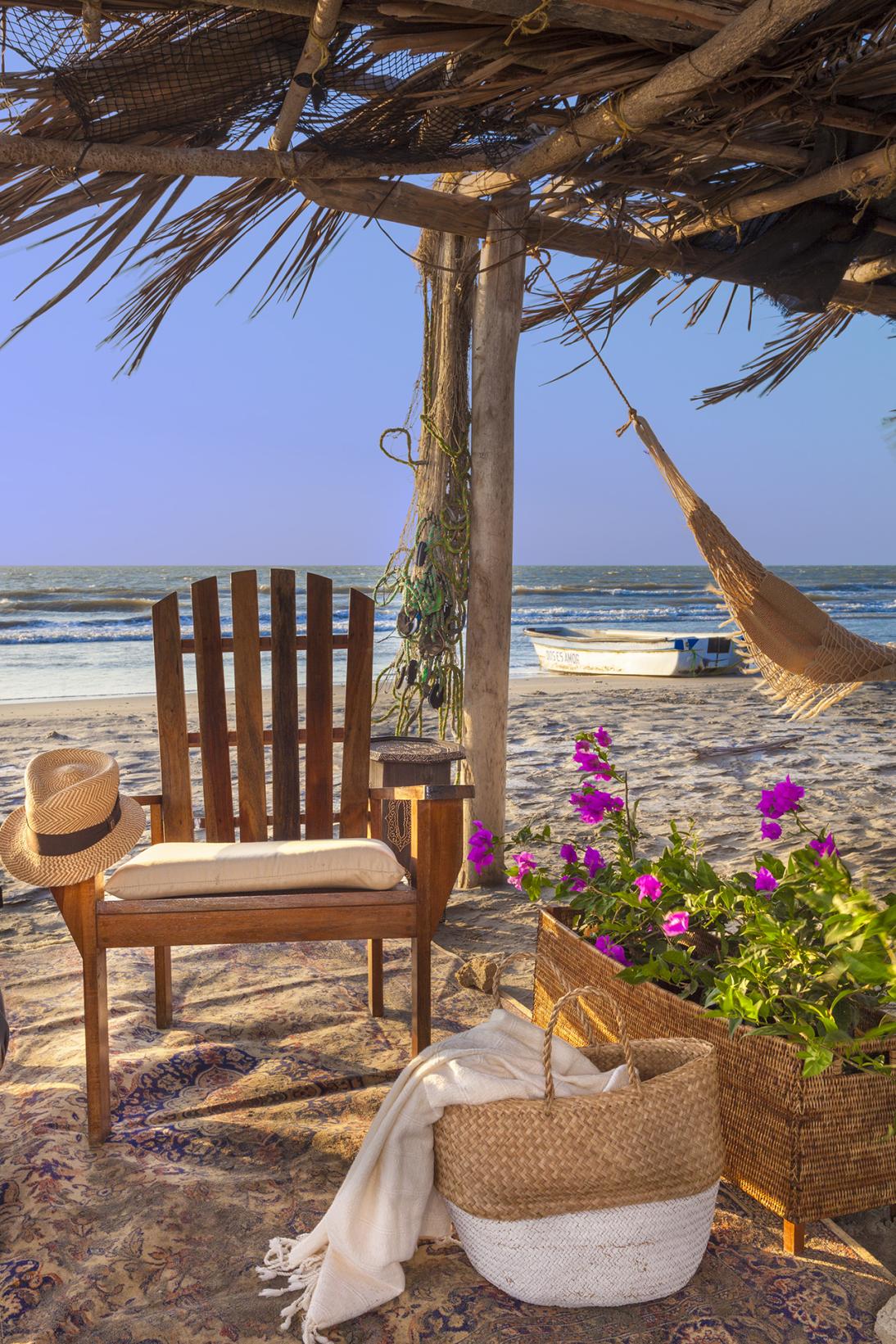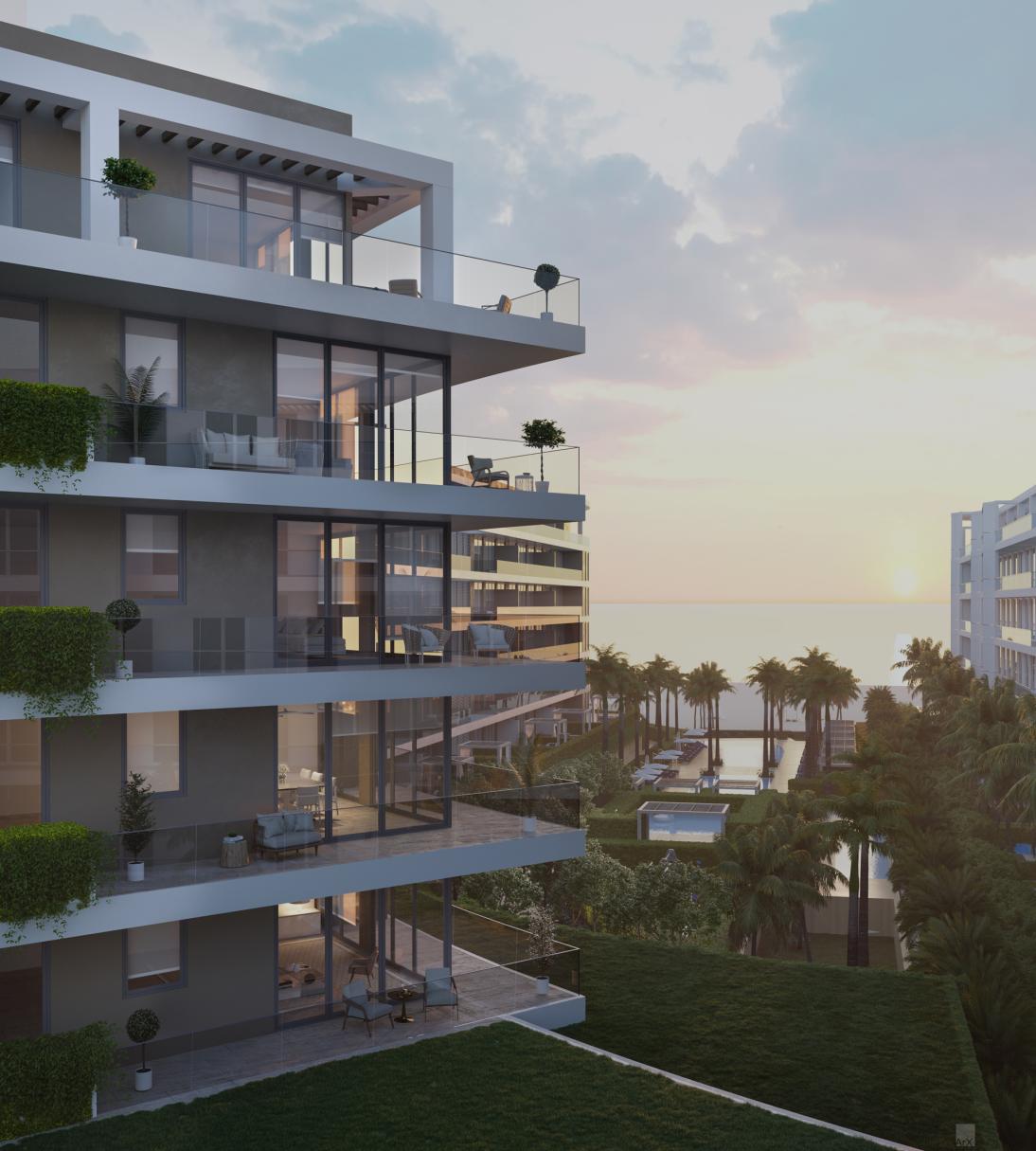

How to invest in Cartagena, Colombia
How to invest in Cartagena, Colombia
Do I need a visa to buy a property in Colombia? No, it is not necessary. As a foreigner, you can buy a property in Colombia. The Colombian government recognizes the importance of foreign investment and has facilitated the process for foreigners to buy property in Colombia. The process is the same for foreigners as for locals, the only requirements are: to be of legal age (18 years), to have a valid identity document (passport) and to have sufficient funds for the purchase. In addition, you may be eligible for a Colombian investment visa through the purchase of property (see Investor Visas).
To buy a property in Morros Park the steps to follow are:
- Sign Adhesion Contract with the project trust
- Signing of Instruction Letter: you must sign a letter (sarlaft) where you authorize your financial capacity and the origin of the resources to be reviewed, and once approved, you are officially part of the project.
- Signing of Sales Contract (promise to sale)
- Send money on the dates established in the sales contract (monetization).
- Preparation and signing of Public Deed. The Public Deed is a written legal instrument and a notary must be hired to produce it.
- Notarial expenses (see notary fees) and formalization of the sale by registering the deed in the Public Instruments Registry Office and then in the Land Registration Office (Oficina de Catastro) where you will be officially registered as the new owner of the property.
- Apply for investor visa (if interested)
- Apply for the immigration card (if you have the visa)

Many investors are inclined to buy before or during construction, because since the property is not finished at the time of negotiation, its value will increase while in construction. In addition, it can be reserved with a small down payment and the rest can be paid in interest-free installments.
Financing alternatives. If you do not have all the resources for the purchase of a real estate property you can go to financial institutions, which will assist you directly or through an intermediary, depending on the country in which you are, to access a mortgage loan. Banks offer different alternatives that can be adjusted to your needs. However, typically, these entities finance up to 70% of the commercial value and, therefore, it is important to have savings for the down payment.
The money destined for the acquisition of housing must be registered and nationalized through an agent authorized by the Bank of the Republic. For foreigners, monetization is done through their local bank, using a Swift code (supplied by the builder) to an account in a bank in Colombia (see monetization).
Processes related to the purchase of real estate and related to foreign investment
Processes related to the purchase of real estate and related to foreign investment
- Real Estate Trust
- Land Trust
- Documents to be signed
- Monetization
- Final Payment
- Condominium Rules
- Public Deed
Pre-sales fiduciary assignment.
The real estate developer creates this fiduciary assignment to collect the money from the sales, which enters directly to the Trust for its administration and to give the buyer confidence and reassurance that only if the Transfer Conditions are met the money will be used by the real estate project.
Transfer Conditions also known as break-even point conditions:
- Commercial break-even point: Sales are between 60% or 65% of the properties, which covers the costs of the project (direct and indirect costs). This percentage does not include the cost of the land, professional fees or profit. On certain projects, sales are required to be a specific percentage.
- Technical break-even point: Get the license for the project
- Financial break-even point: A construction business loan with a bank is approved
- Legal break-even point: The land belongs to the project through the constitution of a Land Trust.
Money is held individually (each client) in a trust fund, but cannot be used or withdrawn unless:
- The buyer desists (in this case it is necessary to consider whether there are fines or not in the documents that are signed with the real estate developer).
- The Transfer Conditions are not met, the returns of these money will be the client's and the trustee will deduct the 4x1000 tax and the withholding tax at the time of returning the returns.
If the Transfer Conditions are met (which is certified by the trustee) the money plus the returns (also in the trust), become available to the developer to use within the project (Administration and Payments Trust). The returns, in this case, is not paid to the client, but become part of the income of the project as an additional income from financial returns.
What is known as free-standing/stand-alone trust fund is constituted, where the land is protected.
If the Transfer Conditions are met, the Land Trust is integrated with the Administration and Payments Trust forming the Real Estate Trust.
At this time the trust delivers the land as collateral to the bank that made the loan.
The bank divides the loan money into two parts: 1. pre-operational or operational and 2. constructor.
The note made by the Public Instruments Registry Office is called “mayor extension” mortgage and the proportional part of the credit in each apartment is called pro-rata.
For the disbursement of the construction loan resources (each time it is requested) a higher percentage of sales is required than that indicated in the Transfer Conditions as well as a higher percentage of money collection and a higher percentage of work progress.
Documents to be signed by the client
- You must sign an Adhesion Contract according to the model of the Trust Company (request)
- You must sign an Instruction Letter according to the model of the Trust Company (request)
- You must sign a Sales Contract (promise to sale) with the promoter which has a series of clauses (request)
To deposit money to the Trust Fund, each client is assigned a Trust Number, which must be used from then on to pay all their installments.
The Sales Contract has a conditional clause which indicates that if the Transfer Conditions are not met in the time determined for it, it is understood as not written or subscribed.
There may be other conditional clauses by the developer.
Along with the Sales Contract, the blueprints of the apartment, the technical specifications of the building and the finishes of the apartment are also delivered. The client must sign these documents along with the Sales Contract. You are also provided with a personalized amortization chart where the agreed terms for the payment of the apartment are found.
In case of being a foreigner, the collection of the money would be through a monetization process.
The monetization process basically consists of the entry of foreign money into the Colombian market legally.
The money you are going to use to buy the real state property must be registered and nationalized through the Bank of the Republic through an authorized agent such as a Bank.
Commonly, what is done is to send a money order to a family member or close friend in Colombia, this process is known as remittances. Sending large sums of money in this way causes the recipient to pay taxes in the country.
Sending money as remittances is fine if you want to help your relatives, but it is not recommended when you want to make your own investment and when you want to sell you can legally take the money out of the country.
There are companies that exchange your currency at the best market rate and transfer them in Colombian pesos directly to the Trust, without intermediaries.
One of the biggest advantages of monetizing money with these companies is that you will not have to pay taxes because they are responsible for entering the money into the country and legalizing it before the Bank of the Republic. This makes the process of buying real estate for Colombians who are abroad, as well as foreigners, simpler and also more profitable so that they can invest in their future with the best rates and getting the most out of their money.
The first thing is to choose the real state project in which you want to invest, remember that before doing so, you must evaluate your financial capacity, income and expenses so that you are already very clear about the maximum budget you can invest.
The requirements are very simple:
- You must present your passport
- Copy of most recent tax returns
- Bank statements of the account where the money will come out to pay for the investment
This documentation is reviewed almost immediately and within 24 hours, you can have an approval response. Subsequently, they send you the account number for the transfer/deposit and you can do it easily from your country of residence. The company is responsible for legalizing these currencies in the country and making the payment to the Trust.
How long can it take?
The first thing is to send the documents, the same day they give you the approval, the second day you make the transfer/deposit to the account number they indicate and the third day, the money is monetized and deposited to the Trust Number related to your apartment.
It is a fast and simple process for you to invest in your future and make that dream of having your own home in Colombia come true.
There are several foreign currency nationalization forms, in this case you must register your foreign direct investment resources using form No. 4.
The final payment can be cash, credit or leasing.
There are banks that do not lend to a foreigner unless he is a Colombian resident abroad. (See credits for foreigners)
Condominium Rules and Regulation
During construction, once the technical aspects of the project have been defined and the reforms to the license (if any) have been approved, the condominium floor plans are drawn up. A Rules and Regulation document is also made where each property is described. After registering this document at the Public Instruments Registry Office, each property is assigned a real estate registration page in which each property is given legal life. On each registration page is included the Condominium rules and regulation and the “mayor extension” mortgage of the bank.
In order to hand over possession of the apartment to the buyer when the project is finished, the buyer must be in good standing. At the time of signing the deed, the seller must present the paid in full receipt of Capital Gains and Property taxes up to the date of signing. The buyer must have the cash, mortgage loan or leasing approved.
- If the apartment is bought in cash, the balance must be paid to the bank so that it pays the credit according to pro-rata and the “mayor extension” mortgage is released, which is registered along with the deed of sale.
- If the client uses a financial lease from the same bank that granted the credit, the process of releasing the “mayor extension” mortgage and the financial leasing process is done internally with the registration of the Deed.
- If the client uses a mortgage loan from the same bank that granted the credit, the process of releasing the “mayor extension” mortgage and the new mortgage process is done internally with the registration of the Deed.
- If the financial leasing or mortgage loan is with another bank then you have to do a procedure with the two banks involved so that the bank that granted the construction business loan gives a Certificate of Release and when the Deed is registered, the new bank makes the payment leaving the apartment mortgaged or leased in favor of the new bank.
Monthly Payments
Monthly Payments
After the handing over possession of the property by the construction company, as the owner you are responsible for the payment of certain services (utilities) such as: homeowner association (HOA), energy, water, sewerage, internet, etc. These payments can be made online through the website of the different service providers.
- The payment of the HOA fee is initially made through the construction company (provisional administration) until the company that is going to be officially commissioned is chosen, then the payment of the HOA fee will be made directly with said company.
- For payments for energy services, the companies Celsia https://www.celsia.com/es/ and Afinia https://energiacaribemar.co/ are in charge.
- The company Aguas de Cartagena provides the public services of Water and Sewerage and also the garbage collection service https://www.acuacar.com/
- The company Surtigas is responsible for the natural gas service https://www.surtigas.com.co/
- Telephone and Internet service companies are up to each client. We have Tigo https://www.tigo.com.co/, Claro https://www.claro.com.co/personas/, Movistar https://www.movistar.com.co/, among others.
There are people who provide property management services and are responsible for keeping the apartment clean, paying utilities, and if necessary, rent seasonally. If you are interested, we can recommend some options.
Investor Visas
1. VISA M - REAL ESTATE INVESTMENT
Colombia offers an M Visa for Real Estate Investment. This investment can be a residence or a rental property, making it an affordable option for many. This is one of the most common types of Colombian visas for expats seeking early retirement. Your investment is required to be 350 times the current minimum monthly wage (S.M.M.V.) in Colombia.
350 X S.M.M.V. = 406,000,000 COP = $86,382 USD total using prevailing exchange rates.
2. VISA RESIDENTE (R) - REAL ESTATE INVESTMENT
A 5-year permanent resident visa. The main differences between M vs R Visas are the amounts required to invest (350 X S.M.M.V. vs 650 X S.M.M.V.), the duration of the visas (3 vs 5 years), and the physical presence requirements. If you physically leave Colombia for more than 6 months without re-entry, the M Visa loses its validity.
With an R Visa, you will need to leave Colombia for two consecutive years without returning to Colombia, to invalidate your R Visa. An R visa provides a path to dual citizenship after a five-year period.
650 X S.M.M.V. = 754,000,000 COP = $160,425 USD investment required at the current exchange rate.
Documents required when submitting the visa application:
- The visa process is easy and done online. The application will require PDF scans of all required documents below and photos in .JPG format.
- Original and photocopy of the first page of the passport with personal data
- Original and photocopy of passport showing passport with Colombian immigration stamp
- A passport-size photograph
- Income Verification letter: certificate issued by government, public or private company, foreign entity or diplomatic or consular mission of the country from which the foreigner receives the funds for retirement. Funds shown must meet monthly income requirements. This certificate must be apostilled and translated.
- Copy of previous Colombian visa, if applicable

Bank Account
Bank Account
To open a bank account in Colombia as a foreigner, it is an essential requirement to have a Foreign Identity Card, since this is the legal identity document for people who have a visa to stay for a period of more than three months in the country.
The Foreign Identity Card is an identification document issued by Migración Colombia, which is granted to foreigners holding a visa of more than 3 months.
Having a savings account in Colombia is very important so that you can make payments in entities in Colombia through PSE and to make payments and withdraw money when you come to Colombia.
Credits for Foreigners
Fundamental requirements to acquire a loan in Colombia as a foreigner:
- Be of legal age (be at least 18 years old).
- Have a recurring income month by month.
- Have a bank account.
- Have an immigration card or a document certifying your current residence in Colombia.
In addition, you will also be asked for personal information, such as:
- Name and telephone number.
- Date of birth.
- Credit history.
- Dependents.
- Address.
- Type of employment.
- Monthly net income.
- Seniority in current employment.
- Monthly expenses.

The above with the aim of corroborating that you have a stable economic income, which would allow you to meet your payment installments, which will be established at the time of applying for your credit in the financial institution of your choice.
There are other requirements as a foreigner, and will be different depending on the financial institution in which you are carrying out the procedure.